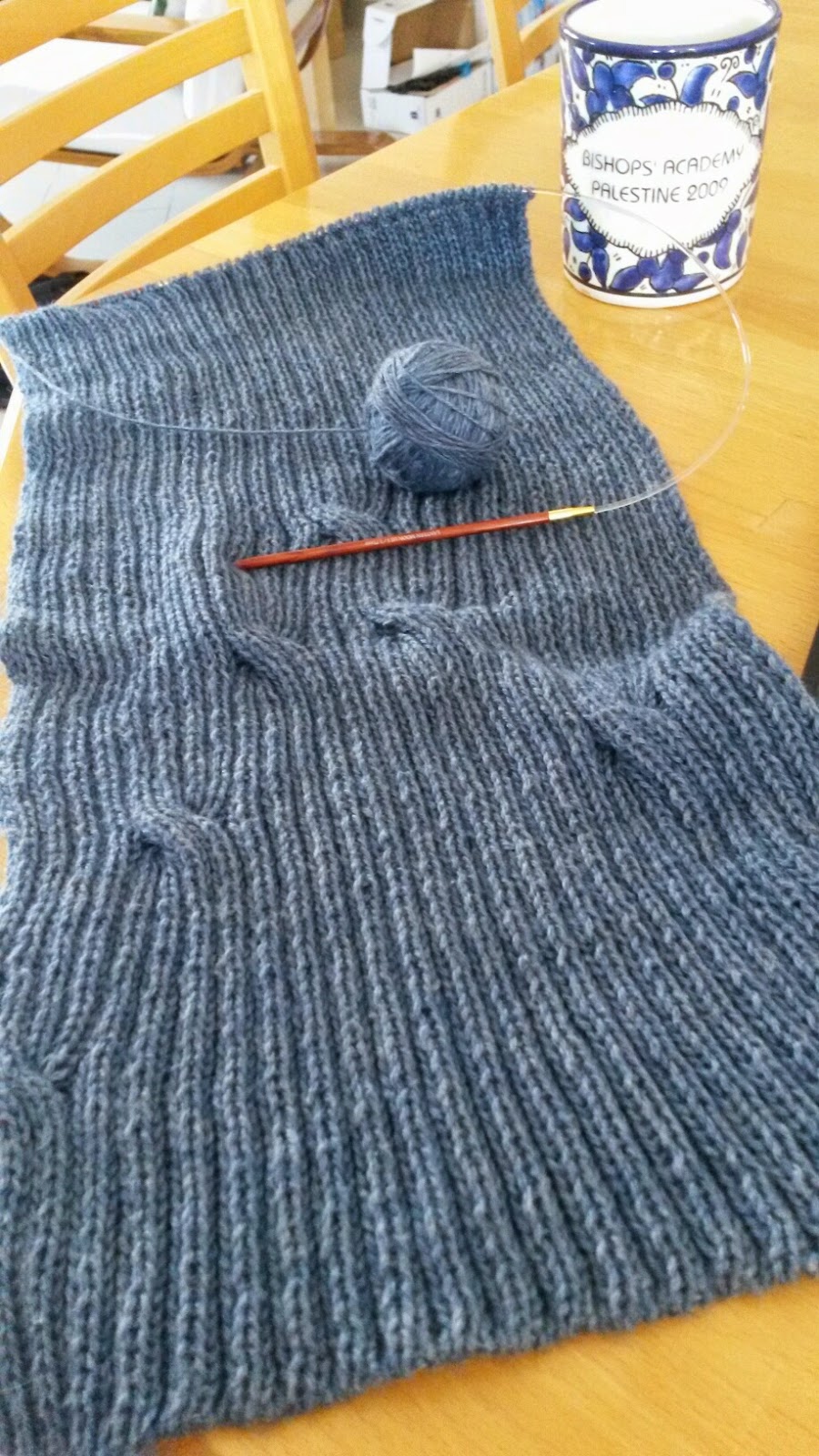Knit Purl Read Write Dance Sing Create
After a month in our new home, I count it as a good sign that I've finally found a few moments to knit. After several weeks when all I could do was fall into bed at the end of the day, I now have a bit of energy to put into creating something.
Of course, knitting, at least the way I do it, is not truly a creative enterprise. I don't write the patterns. I rarely make changes to the original design, except in the way of mistakes. But there is something about knitting that feels like resistance--a way of saying to the world, "You may try to wear me down, but I MADE something today. These 2 inches of shawl did not exist yesterday! I was here!"
This ability to see progress at the end of the day, and to make something from nothing, has been especially important to me in my life as pastor, when it can feel that my praying, planning, and preaching are just so many words up against the powers and principalities of the world. I know I'm not the only one who can sometimes feel this sense of futility. Our new neighbors work for UNRWA (United Nations Relief and Works Agency) and have just moved in next door from South Sudan. They shared how saddened they are at the continuing internal conflict there. "We arrived there just after independence, and there was so much hope. Now, we wonder if our work made any difference at all."
Still, we keep on. I'm reminded of another favorite quote from my beloved Dorothy Day: “People say, what is the sense of our small effort? They cannot see that we must lay one brick at a time, take one step at a time. A pebble cast into a pond causes ripples that spread in all directions. Each one of our thoughts, words and deeds is like that. No one has a right to sit down and feel hopeless. There is too much work to do.”
Our Palestinian neighbors and colleagues can teach us a thing or two about resilience and resistance. In his new book, "Faith in the Face of Empire: The Bible Through Palestinian Eyes", Pastor Mitri Raheb talks about the importance of creativity and the arts as acts of resistance:
“We need a new generation that can express ‘the hopes and fears of all the years’ through painting, dance, theater, and music,” he says. “Giving the subaltern a voice to speak but also a face, a song, and a movement is the essence and product of creative resistance” (page 122).
You can read about one beacon of hope in this effort to nurture such a voice just down the road, in Bethlehem. The school is expanding to now offer Bachelor's degrees in the arts:
Of course, knitting, at least the way I do it, is not truly a creative enterprise. I don't write the patterns. I rarely make changes to the original design, except in the way of mistakes. But there is something about knitting that feels like resistance--a way of saying to the world, "You may try to wear me down, but I MADE something today. These 2 inches of shawl did not exist yesterday! I was here!"
 |
| Knitted shawl, in progress |
Still, we keep on. I'm reminded of another favorite quote from my beloved Dorothy Day: “People say, what is the sense of our small effort? They cannot see that we must lay one brick at a time, take one step at a time. A pebble cast into a pond causes ripples that spread in all directions. Each one of our thoughts, words and deeds is like that. No one has a right to sit down and feel hopeless. There is too much work to do.”
Our Palestinian neighbors and colleagues can teach us a thing or two about resilience and resistance. In his new book, "Faith in the Face of Empire: The Bible Through Palestinian Eyes", Pastor Mitri Raheb talks about the importance of creativity and the arts as acts of resistance:
“We need a new generation that can express ‘the hopes and fears of all the years’ through painting, dance, theater, and music,” he says. “Giving the subaltern a voice to speak but also a face, a song, and a movement is the essence and product of creative resistance” (page 122).
You can read about one beacon of hope in this effort to nurture such a voice just down the road, in Bethlehem. The school is expanding to now offer Bachelor's degrees in the arts:
Or, watch this excellent welcome video about the Dar al Kalima School, a ministry of the Evangelical Lutheran Church in Jordan and the Holy Land:
Comments
Post a Comment